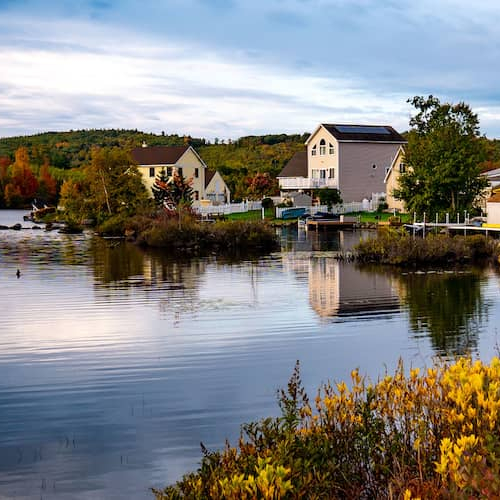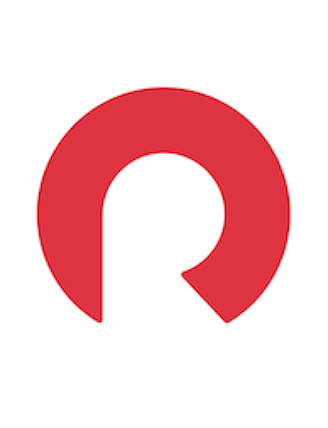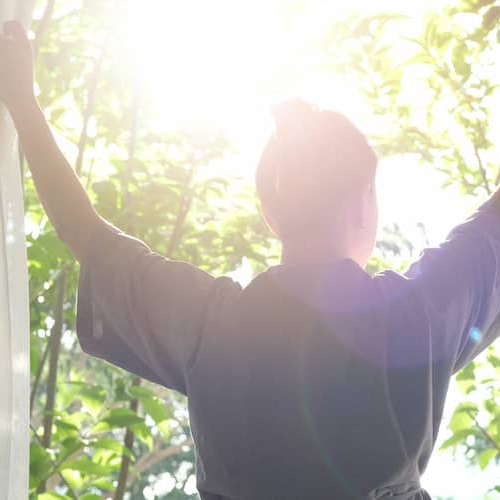How to find a cottage to buy: A step-by-step guide
Jul 16, 2025
•10-minute read

We’ve all probably dreamed of having a small cabin in the mountains or a cottage by the seashore. Maybe you’ve thought about it a bit more seriously and know just what you’re looking for or where you’d love to have one. We’ll go over exactly how to find a getaway cabin of your own, how to finance it, and what to consider during the process.
What is a cottage or cabin?
The terms “cottage” and “cabin” are often used as if they mean the same thing, but there is a difference. A cabin is a wooden structure that may or may not have utilities and amenities. A cottage is a rural home built from a variety of materials beyond wood, includes utilities and amenities, and has an asymmetrical appearance. Both are small, cozy homes that are typically one story, though some might include a loft.
While plenty of people use a cottage as a primary residence, cabins are mostly used as vacation homes. Most second homes are concentrated around beachfronts or in the mountains, suggesting that they are used as getaway locations.
Many cabins and cottages can be financed with traditional mortgages, but there might be restrictions. For example, if a cabin lacks a permanent foundation or is too inexpensive to qualify for a typical mortgage, you might have to consider other options. Financing options will also vary depending on whether you plan to use the home as a primary residence, a vacation home, or an investment opportunity.
How to buy a cabin: Step-by-step
Whether you want to live in your cottage year-round or wish to keep it as a vacation home, you’ll follow a similar process for buying it.
1. Choose your location
Everyone’s idea of a perfect vacation home is different. Maybe you want a wooden cabin in the mountains of West Virginia or a little cottage on the coast of Maine. If you’re buying a cottage, it should be in a place that means a lot to you, somewhere you’re eager to go to again and again.
However, there’s more than just your ideal vacation spot to think about when you buy a cottage. You should also consider:
- Weather and hazards. Many popular vacation spots on the water are at risk of flooding and hurricanes throughout the year. Make sure you’re prepared to be a homeowner in a hazardous area if you’re looking at cottages there.
- Amenities. Besides the features of your ideal cottage, think about what you want in the area. Is it very important that you have a grocery store up the road, or are you okay driving 30 minutes to one?
- Taxes. Property taxes and homeowner insurance costs vary widely across the country. Sometimes there’s a big difference from one town to the next. Make sure these extra expenses are in your budget.
- Popularity of area. Whether you want a vacation home or a cottage as a primary residence, you might want some peace and quiet. Others might have the same idea as you, so you might want to visit the location throughout the year to get a feel for what it’s like.
2. Decide on your requirements
You’ve chosen where you want your cottage. Now you need to think about exactly what you want your house to have. Do you want a small one-bedroom getaway just for you? Or do you want an extra bedroom or two for guests? Is that beachfront a must, or do you just need the view? How much land do you want? Do you want a deck or porch to watch the sunset from? Consider every detail just as you would with a primary residence.
3. Save for your cottage
Now you have your location and your list of must-haves. But before you begin looking for your exact dream home, you want to be sure you have some money put aside.
The down payment for a second home is usually higher than that for a first home. If the cottage will be your primary residence, it might be more important to set money aside for furnishing it right away.
To build a plan, you’ll want to ask these questions:
- How soon do you want to buy your cottage?
- Will the cottage be a family purchase, and will you have a co-borrower or co-signer?
- What is your planned budget?
- What percentage will you be able to put down?
Give yourself multiple timelines in case life gets in the way. For instance, let’s say you want to buy a cottage in 2 years, and think you could afford monthly payments on a $200,000 cottage. You have no money for the down payment saved yet, but you want to put 15% down. To get the 15% down payment, or $30,000, you’ll need to hide away $1,250 a month for the next 2 years. This might be tough if there’s an emergency, so have a backup timeline and plans.
4. Choose a lender and apply
Have enough saved up for a down payment? Now’s the time to choose a lender and start the mortgage application process. Here are some things to be aware of.
Getting your initial mortgage approval is important
Preapproval from a mortgage lender will make you a more qualified buyer and tell the seller that you can get financed for your offer. This can really help if there are others interested in the same property.
With a Rocket Mortgage® Verified Approval, you’ll have the confidence and backing of your lender, which could make you a more trustworthy candidate to a seller.
The qualifications might be stricter
Second homes are considered a higher risk for lenders and investors because most people will focus on paying off their principal residence first in an emergency.
Renting has different rules
Each lender has their own policies about what’s a second home and what’s an investment property. Be clear with your lender about whether you’ll be renting the property out. This might mean a higher interest rate, and you have to report the rental income on your taxes if you rent out the property for 15 or more days per year.
5. Find a cabin and make an offer
Now you’re finally ready to find your ideal cabin or cottage. Try to find a real estate agent who knows the vacation home market who can help you narrow down your options. When you find your dream cottage, you can make an offer.
6. Complete the closing process
It’s time for the closing process, which usually takes 30 – 60 days. Here are some things that will happen during this process:
- Inspection. You want to make sure your property is in good condition. An inspection will catch any hidden issues. This is usually optional, but a good idea.
- Appraisal. An appraisal will be required to figure out the property’s value. This will ensure you’re taking out the right-sized loan.
- Underwriting. Your role in the underwriting process is to submit financial documents. You’ll want to make sure you have all your paperwork in order to avoid any delays.
What to consider when buying a cottage
There’s a lot to consider when buying a home. While buying a cottage isn’t so different from buying other types of houses, you have a few other things to think about.
How frequently you’ll visit your cottage
Visiting the cottage year-round or using it as a primary residence is very different from visiting it once a year for a month. Your must-haves and the amount of money you want to put into it might change based on how much time you’ll spend there.
How much you’ll pay in utilities and other costs
You can shut off most utilities when you’re not there if you’re using this as a vacation home. You don’t need air conditioning or internet all year. However, turning off everything can lead to problems, so you’ll have to think about these additional property costs:
Winterizing
Shutting off the heat in most of the country means frozen pipes. You can avoid this by turning off the water, but if you’re visiting the cabin regularly, this might be a hassle. If you’re keeping the heat on all year, local government websites might tell you what temperature is safe.
Accessibility
Are there many paved roads where you want your vacation property? If not, and you have winter plans, you might need to consider snow management and a winterized car.
Water
Many rural properties are not on a city water system, so the water supply to your rustic cottage may be groundwater or even your own septic system. If this is the case, you might have to hire a septic company for maintenance.
Environment
If your property is lakefront, there might be lake maintenance fees for bugs or lake cleaning. If you’re part of a homeowners association (HOA), these costs might be covered already, but you don’t want to be surprised by extra fees.
What general maintenance costs to expect
A house must be maintained, and it’s suggested you reserve 1% – 3% of the total purchase price every year for repairs. But if it’s just your private getaway, maybe you’re less concerned about everything being perfect. On the other hand, if you aren’t there year-round, you might miss critical problems that arise. Cleaning up the mess months after a pipe bursts or a storm damages some windows can be costly.
What insurance costs will be required
Just like with other homes, you’ll probably have to pay insurance. Because many vacation home hotspots are in zones at risk for flooding, you might also have to pay for hurricane or flood insurance.
Speak with your real estate agent about extra insurance costs.
How much does a cottage cost?
It’s hard to say what the average cost of a cabin or cottage is because no statistics are collected by specific house type. Location, condition, and size are the most important factors when considering any property purchase.
The location variable
If a cabin is in the perfect location for you, it might be the perfect location for many others. That means that the price will be higher than a similar property in a less desirable area, and there will be more competition to buy it. Cabins and cottages close to waterfronts or in popular mountainous regions might be more expensive than those farther away from them. Some states are also more popular for vacation homes than others.
Cost of ownership
You see your dream cabin for sale at $312,000. Unfortunately, that isn’t the only cost to worry about. As with any property, you’ll have to think of these additional expenses:
- Property taxes
- Homeowners insurance
- Utilities
- HOA fees (if applicable)
- Furnishing and stocking
- Upkeep and repairs
- Costs to get to and from the property
What’s the best way to finance a cottage?
Just like buying a house or condo, there are many ways to finance a cottage or cabin. If your cabin will be your primary residence, you’ll have more options. What’s best will depend on your circumstances. You might qualify for a government-backed loan. If it’s going to be a vacation home, here are some alternative ways to finance it.
Cash-out refinance
You might already have plenty of equity in your primary residence. If you do, you can get a cash-out refinance. You can use that money for a down payment, or even a full purchase, on the cottage. These refinances replace your current mortgage, so you’ll still have just one monthly payment.
Home equity line of credit
A home equity line of credit (HELOC) is another option if you have plenty of equity. A HELOC lets you take out a line of credit on your primary residence. Rocket Mortgage doesn’t currently offer HELOCs.
Second mortgage
Another option is a second mortgage on your primary residence. The requirements for these can be more strict than those for getting a first mortgage, so be sure your finances are in order and you have enough income to cover a second mortgage.
Renting vs. buying: The pros and cons of owning a cabin or cottage
Sometimes, it’s tough to know if you should buy or rent. Take a look at these advantages and disadvantages of buying a cabin.
Pros of buying
- Long-term use: Maybe you know exactly where you want your cabin to be and want to use it as a space to make memories with your family and friends. You can watch your family grow up there, and you can retire there when you’re older.
- More flexibility to make it your own: If you’ve ever rented before, you know how difficult it is to customize your space. If you own the property, you can change it as you please. You can decorate, renovate, and remodel to suit your tastes.
- Future profit: Owning a property means likely building equity. If you decide to sell the cabin down the line, you might be able to make a profit, especially if you renovated the property. If you don’t want to sell but are still looking for some extra income, your cabin could be an investment property that you rent out when you’re not using it.
Cons of buying
- There’s a bigger cost involved: If you already own a house, you know that owning is more expensive than buying. Besides having to worry about taxes and insurance on top of monthly mortgage payments, you also have to consider maintenance costs. After all, you’ll own two houses.
- You’d be locked into the same location: If you don’t think you’ll want to go to the same place for vacation every year, you might want to stick with renting. Buying a cabin means you’ll probably be spending every vacation in the same place, which isn’t for everyone.
FAQ
Here are answers to common questions about buying a cottage.
Is owning a cabin a good investment?
Owning a cabin or cottage can be a good investment under some circumstances. If your cottage is in a vacation hotspot and is well maintained, you could rent it out when you’re not there or eventually sell it for a possible profit. On the other hand, a bare-bones cabin in an isolated location might not have a return on investment.
What size house is considered a cottage?
There are no size restrictions for what is considered a cottage or cabin, though they are generally one floor. In some areas, the city or town might require a minimum lot size in densely populated vacation hotspots, but there’s no minimum or maximum sizes for what can be called a cottage.
When is the best time to buy a cottage or cabin?
Because a cottage or cabin is usually a secondary residence and you already have somewhere to live, there’s no need to compromise on what you want. There’s no one right time of the year to buy a property, and the simple answer might just be “when you’re ready.”
The bottom line: A getaway cabin could be in your future
Buying a cabin or cottage can be a big investment, but it might be worth it depending on your lifestyle. If a vacation home (or year-round home) off the beaten path is right for you, go on and start saving up for a down payment while you dream of the beach or mountains!
If you think you’re ready to get preapproved, set your dream in motion and start the home buying process online today.

Kate Friedman
Kate is a contributing writer and publisher who has worked with Rocket since 2022. She also works as a middle-school interventionist and has taught personal finance and life skills to high-schoolers.
Related resources

9-minute read
Home hunting tips: How to find a house
From getting a mortgage approval to viewing homes, the house shopping process involves several big steps. Get familiar with how to find a house here.
Read more
9-minute read
Investment property loans: What are they and what are your options?
Considering buying an investment property? Learn what an investment property is, the types of properties you can invest in and how to get financing through a lo...
Read more
6-minute read
How to buy a second home with no down payment
Do you long for a getaway house of your very own but aren’t sure you can afford one? It may be possible to buy a second home with no or low down paymen...
Read more